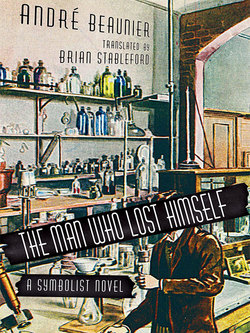The Man Who Lost Himself

Реклама. ООО «ЛитРес», ИНН: 7719571260.
Оглавление
Beaunier André. The Man Who Lost Himself
Отрывок из книги
L’Homme qui a perdu son moi by André Beaunier, here translated as The Man Who Lost Himself, was originally published in Paris by Librairie Plon in 1911. That translation of the titular phrase is a trifle oversimplified because English cannot quite reproduce the ambiguity of the French “L’Homme,” which can be construed as “the man” with reference to an individual or “Man” in the sense of humankind. The “a” in the title derives from the second significance, suggesting that the story of the particular individual whose “loss” of himself is described and analyzed can be seen as emblematic of the entire race having, in a sense, lost its “self.”
André Beaunier was born in Evreux in 1869 and educated at the Lycée Henri IV and the École Normale Supérieure. His literary ambitions took time to bear their first fruit, but eventually made him one of the most respected critics of literature and drama in Paris, working in the former capacity for the Revue des Deux Mondes and in the latter for the Écho de Paris. He was the literary critic most esteemed by Marcel Proust, who regularly sought his advice about his works in progress, and he was also a close friend of Paul Bourget—the dedicatee of L’Homme qui a perdu son moi—with whom he wrote a comedy drama in collaboration. After publishing his first novel, Les Dupont-Leterrier in 1900—a reaction to the Dreyfus affair—Beaunier maintained a prolific level of publication until his death in 1925, averaging more than two volumes a year. Although many of those volumes were collections or extensions of his journalistic work, he also produced numerous novels and extended biographies.
.....
What the novel calls “science” it represents as a relatively recent invention, and is, in fact, closely connected with the evolution of the idea of a “scientist”: a specialist professional practitioner of “science.” That notion had emerged along with the idea and evidence of the profession; in English the word “scientist” was coined in the 1820s by William Whewell, but it is arguable that the coinage was slightly belated, the idea dating back to the latter decades of the eighteenth century, when experimental chemistry conclusively replaced mystical alchemy and the modern theory of the chemical elements replaced Classical elementary theory. As soon as there were “scientists,” however, in reality and in literary representation, they quickly acquired a set of supposedly-typical characteristics, partly borrowed from traditional images of wizardy (all the great proto-scientists of the Renaissance tended to be stigmatized as sorcerers and suspected of having made real or metaphorical Faustian pacts with the Devil) but mostly based on wry empirical observation.
The supposedly typical psychology of the scientist was analyzed in France by early proto-psychologists, especially the pioneers of “retrospective diagnosis” François Lélut and François Leuret, who were keenly interested in the supposed relationship between genius and madness, and by scientists themselves, notably Henri Poincaré, another writer cited in Beaunier’s preface and footnotes. It was also, however, a key element of the early development of the French roman scientifique, which rapidly established a kind of standard portrait of “the scientist.” That stereotype is explicitly and carefully delineated in Samuel Henri Berthoud’s “Voyage au ciel” (1841; tr. as “A Heavenward Voyage”) and “Le Second soleil” (c1860; tr. as “The Second Sun”), which are essentially psychological case-studies cast as allegorical fiction, but it was given more relaxed and popular representation in the works of Jules Verne, notably in the characterization of Professor Lidenbrock in Voyage au centre de la terre (1864; rev. 1867; tr. as Journey to the Center of the Earth) and Professor Aronnax in Vingt mille lieues sous les mers (1870; tr. as Twenty Thousand Leagues Under the Sea).
.....